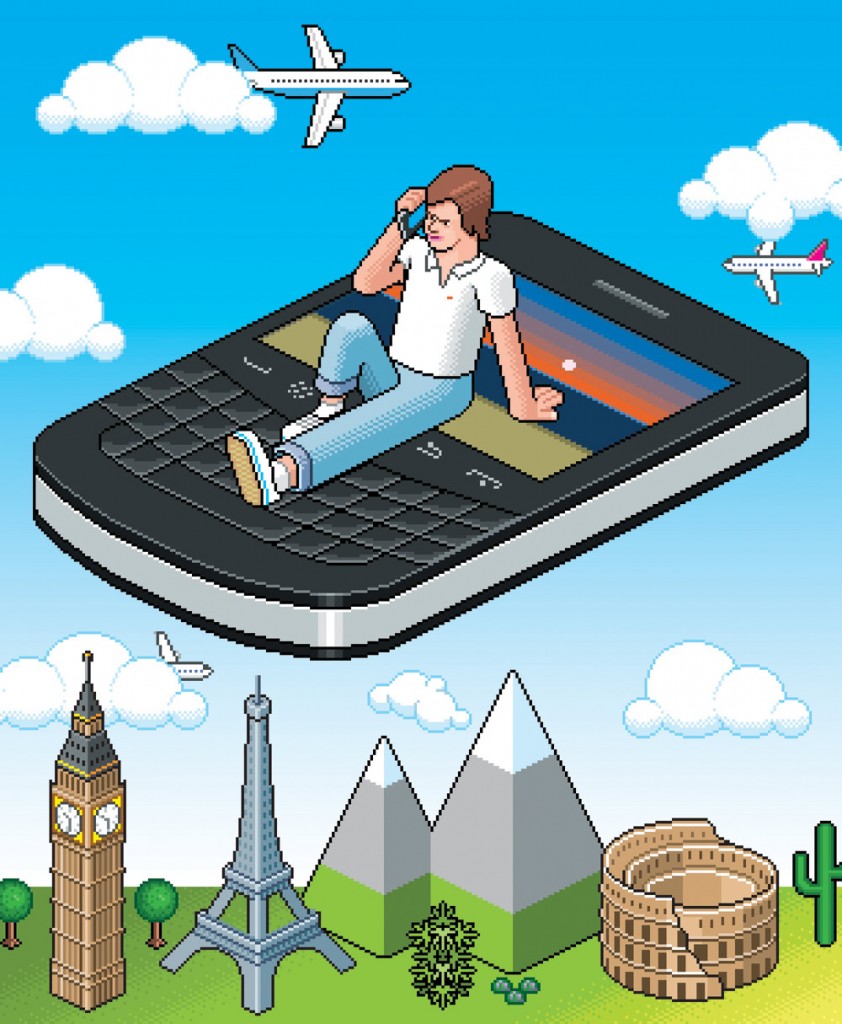

The acronym KIT has spanned the ages (remember your school yearbooks?) but its original meaning has evolved thanks to globalization and technology. While it seems that we Americans have mastered K(eeping) I(n) T(ouch) at home via the Internet and cell phones, the international dimensions of KIT can madden even the savviest travelers. Unfortunately, traveling abroad often includes sky-high cell phone charges for the retrieval of data, texts, and calls in foreign lands. Below are some strategic tips for combatting this frustrating phenomenon.
Minimize e-mail data charges. Retrieving email in one fell swoop can mean hundreds of dollars in data charges. However, Blackberry users on the T-Mobile network can actually mitigate these charges with a $19.99 Blackberry International Roaming e-mail feature, allowing unlimited discounted e-mails (and BBMs) through the e-mail address linked directly to the Blackberry e-mail icon only. Not on T-Mobile? Wait until you can sit down at a computer.
Outsmart Internet data charges. International roaming charges are incurred when cell phones register and retrieve a signal from a foreign carrier. Mobiles with Internet-based apps (iTunes, Facebook) often search for updates without warning, and charges appear for every attempted update. Avoid charges by disabling Web-based apps before traveling, and never browse the Web while abroad. AT&T users can also look into new international data packages for more affordable options for browsing overseas.
Communicate via text messaging. Outside the U.S., incoming text messages count against a monthly text message “bucket” or incur a nominal fee; outgoing messages average 50 cents per message. Keep the texts to a minimum and your bill will stay low.
Use the computer for phone calls. Every time you make or answer a call while abroad, youÂ’ll be slapped with a huge per-minute fee, which varies by country and carrier. Keep your phone off, and KIT through Skype or through GmailÂ’s phone feature on your laptop. If you established either account in the U.S., then calls abroad will register as U.S. domestic, starting at one cent per minute.
Request unconditional call forwarding. If your phone merely rings internationally, youÂ’ll incur a one-minute charge (in some cases $6.99/minute) regardless of whether you answer. For long trips, set up unconditional call forwarding to your landline, disable your mobileÂ’s voicemail, and retrieve messages from your landline answering machine (via Skype or Gmail).
Keep your phone off. The most obvious but often overlooked solution is the best way to avoid charges of any kind.


